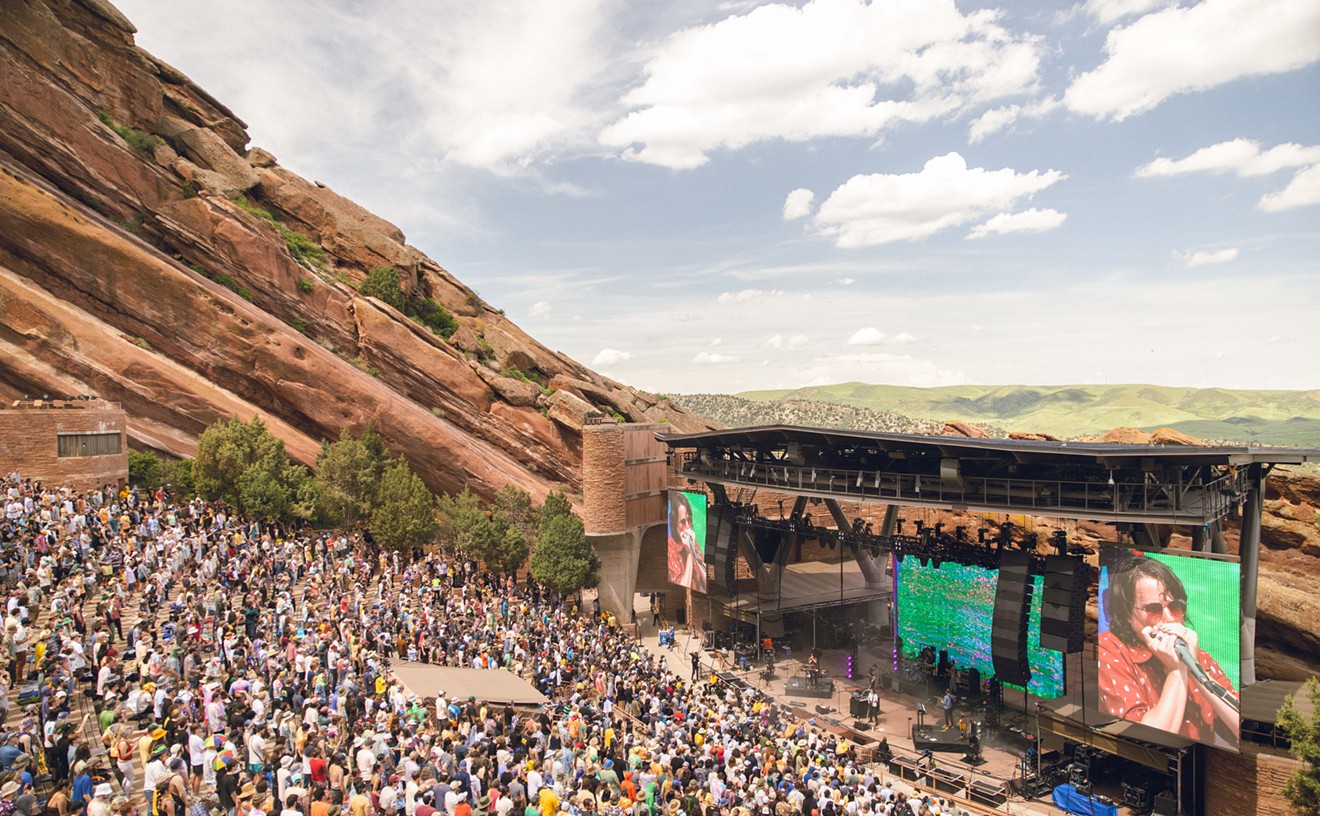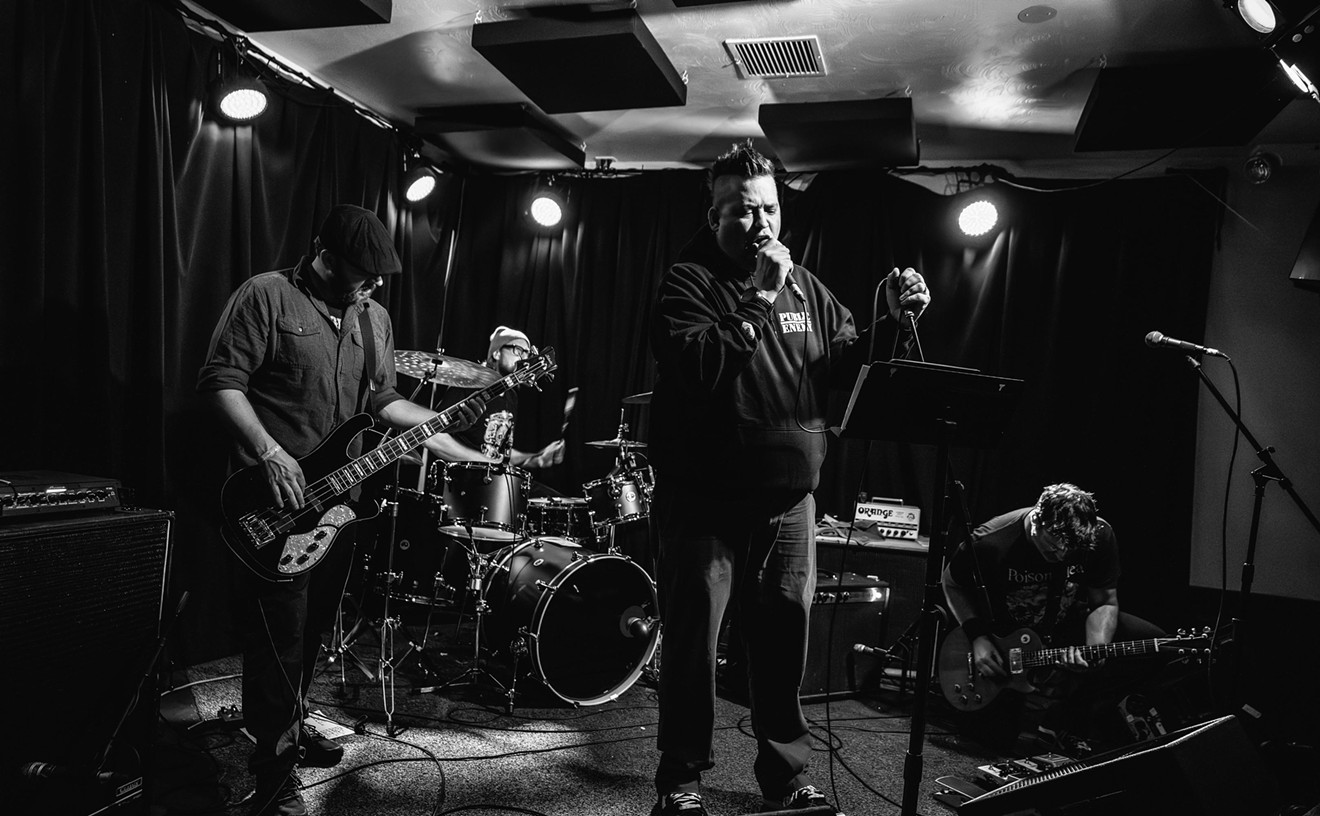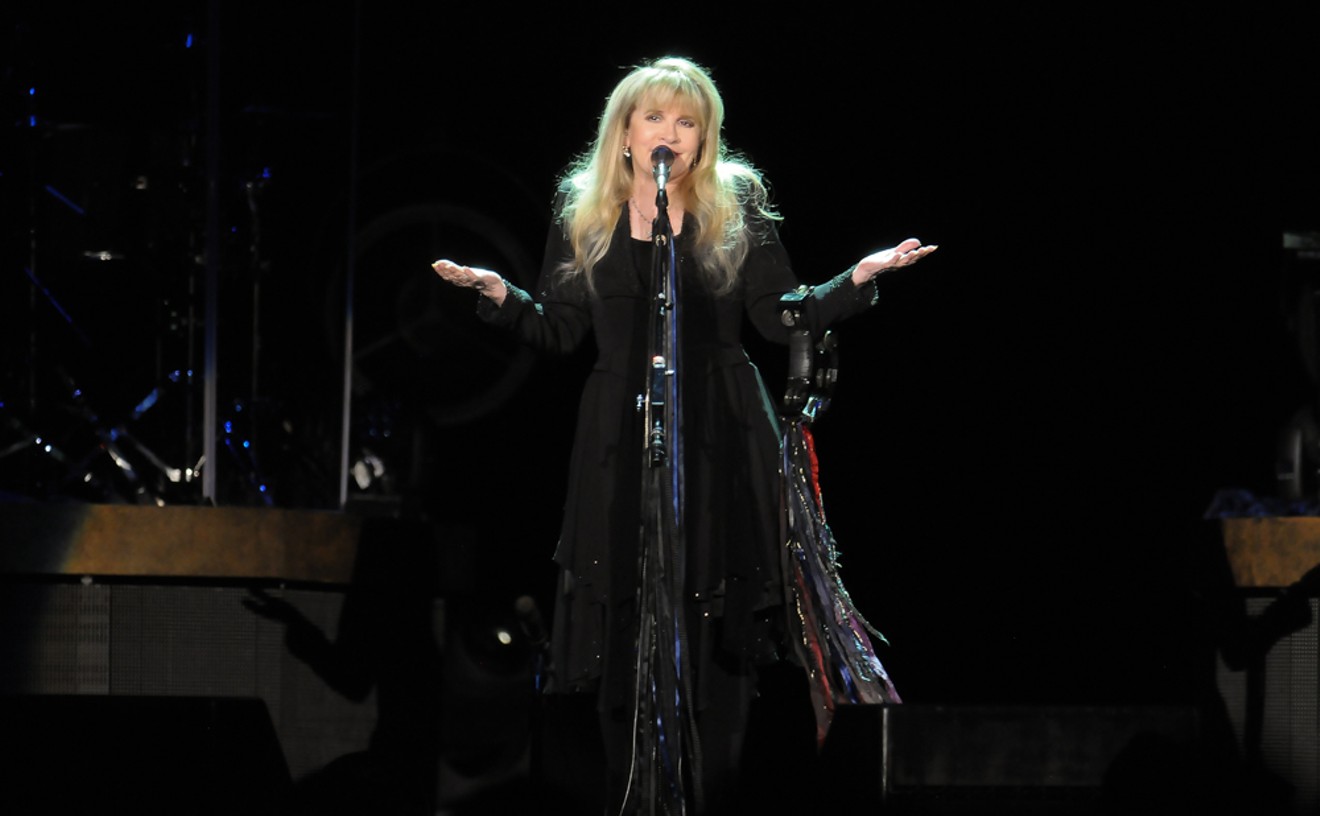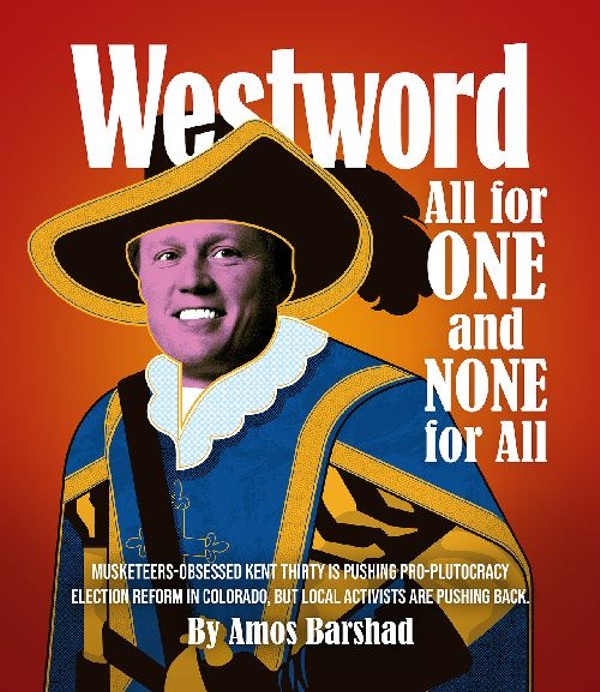The locations covered by the contract are: Red Rocks Amphitheatre, Denver Coliseum, Ellie Caulkins Opera House, the Buell Theatre, Boettcher Concert Hall, the McNichols Building, Bellco Theatre, the Denver Performing Arts Complex (that's any events in the Galleria or the Sculpture Park) and the Colorado Convention Center.
Basically, that means that for the next five years, whenever you go to an event at any of those venues (including the Great American Beer Festival, certain touring theatrical productions and the many concerts at Red Rocks), you'll buy your ticket through AXS. The arrangement has brought up numerous questions from numerous people. Here are the answers to a few of them.
See also: 50 Photos That Prove Red Rocks Is the Most Beautiful Venue on the Planet
1. Why would the city want this?
Currently, the city allows entities renting its venues to use whichever ticketing company they want. That leaves the city unable to cash in on any part of the money collected in ticket fees, which are often more than $10 per ticket. The new contract allows the city to negotiate for part of those fees. "I think the reality is that the city venues were the exception to the way the business is being run now," says Denver Arts and Venues spokesman Brian Kitts -- and he's certainly in a position to know: Before he started working for the city, Kitts spent ten years in the marketing department at Kroenke Sports and Entertainment. "If you look at Live Nation or AEG, if they want to book a show at the Pepsi Center, they have to use Altitude Tickets. That's the way the industry has been for a long time, and the city has just gotten on board."
This contract also gives the city access to information about who is buying tickets in its venues, something it didn't have before. "We will use that, I think, to build a case for better or more diverse programming," says Kitts.
2. Are there any exceptions?Yes. Events already on sale and event promoters who have existing contracts with ticket vendors will not be required to use AXS. GABF, for example, has a contract with Ticketmaster. When that contract expires, the festival will have to use AXS to sell tickets.
Also, the arts organizations in residence at the Performing Arts Complex (which includes the Colorado Symphony Orchestra, the Colorado Ballet, Opera Colorado and the Denver Center for the Performing Arts) are exempt for the foreseeable future.
3. What is AXS?
AXS is a Los Angeles-based ticket merchant co-owned by AEG and Cirque du Soleil. AXS was founded in 2011, and the first two venues for which it handled ticketing were the Bluebird Theater and the Ogden Theatre. Its roster now includes several dozen venues around the United States and a handful in the U.K.
AEG is the largest concert promoter in Denver by far (AEG operates the Bluebird, the Ogden, the Gothic Theatre, the 1STBANK Center and Fiddler's Green, and is responsible for the majority of the concerts at Red Rocks as well as many of those at the Pepsi Center).
More information, including the actual terms of the contract, are on the next page. 4. How much money will the city make?The city currently makes money in rental costs and seat tax on each event at its venues. The seat tax is equal to 10 percent of the money collected from ticket sales, and the rental costs are negotiated with each renter.
The new city ticket fee will also be negotiated for each event, so it's hard to say exactly how much money the city stands to collect from it. Still, Kitts estimates that this contract could bring in $4.72 million in net revenue over the next five years. That includes money from ticket fees and an annual $250,000 payment from StubHub (more on that later).
5. What has AXS agreed to give the city?
AXS will sell tickets to all city events covered by the contract through its existing infrastructure online. It will also operate box offices at the city's venues, providing the hardware (such as printers and scanners) and software free of charge. The city will reimburse AXS for the wages paid to those working at the box offices.
The contract also allows the city to request redesigned websites and mobile apps, free of charge, for all the venues from the web-design firm Carbonhouse, which AXS owns. AXS will also broadcast at least thirty events on its cable channel.
Generally, the city hopes to benefit from the marketing and outreach capabilities of AXS. "We're trying to be places where music buyers or performing-arts buyers or Great American Beer Fest buyers will be when they're out and about, just browsing on the Internet," says AEG ticketing vice-president Blaine LeGere. By the terms of the contract, consumers must agree to let AXS use their information for marketing by opting in, either when buying tickets or when signing up for newsletters and alerts. There will be opt-out options as well.
6. What will AXS get?The contract gives AXS $3 for every ticket sold online for the first three years and $3.25 for every ticket sold for the final two. According to Kitts, those numbers are comparable to industry standards. AXS has also agreed to waive its fee for up to ten events per year, which Kitts says would generally be nonprofit or benefit shows.
There is an insurance built in for the ticketing company, which will get a payment from the city if the total revenue from those fees is less than $900,000. Given that some two million tickets are currently sold every year in the city's venues, however, it's likely that that limit won't matter. And, of course, it's likely that AXS will earn a great deal more than $900,000 per year.
The answers to more questions, including the possible affects on ticket prices, are on the next page. 7. Will ticket prices go up?It's impossible to say right now, because overall ticket prices are determined by the event promoter, which will negotiate its fees on a case-by-case basis with the city. But Kitts says he doesn't think there will be much of a change. The revenue estimates his department gave to Denver City Council suggest that the city's ticket fee will be small, potentially less than a dollar per ticket. "I think that this will be something that will not significantly change the consumer experience," says LeGere.
8. How is StubHub involved?
Secondary ticket market StubHub has what LeGere describes as "an integration" with AXS. The partnership allows StubHub to guarantee the validity of AXS tickets sold there (preventing a scalper from selling a fake, for example). AXS usually gets part of the fees for its tickets resold through StubHub. But LeGere says the company will not collect that payment for tickets originally sold as part of this contract.
Kitts says the city was eager to get StubHub involved. "I think legitimate secondary markets like that are important in protecting venues and consumers," he says. "That's something else that set the AXS deal apart."
StubHub will pay the city $250,000 per year. In exchange, AXS will include links to buy tickets through StubHub on all of its listings for events at the city's venues, and StubHub will be involved in various marketing efforts for the venues throughout the year.
9. How did the city choose AXS?In April 2013, the city requested proposals for a ticket-vending contract for its venues. The applicants were narrowed to four finalists: Altitude Tickets/TicketHorse, Ticketmaster, TicketsWest/NWSS and AXS.
Kitts says the city chose AXS because its proposal was simply the best deal, offering the best price to the city for its services. He recalls the tone of the company's presentation: "They said, 'We recognize that you've got some iconic venues. We can help you promote those venues.'"
• BACKBEAT'S GREATEST HITS •
- 50 Photos That Prove Red Rocks Is the Most Beautiful Venue on the Planet
- The Ten Most Underrated Guitarists in the History of Rock
- 50 Ways to Support Your DIY Music Community
Follow @Westword_Music











